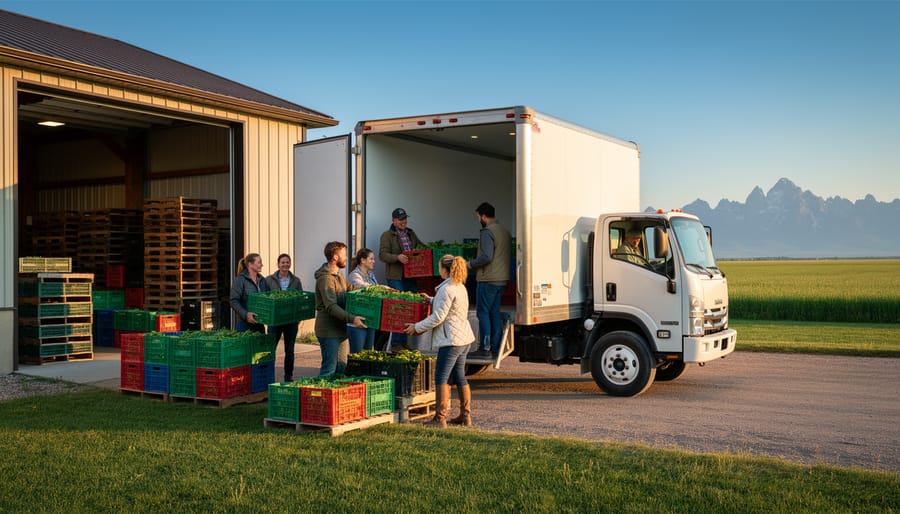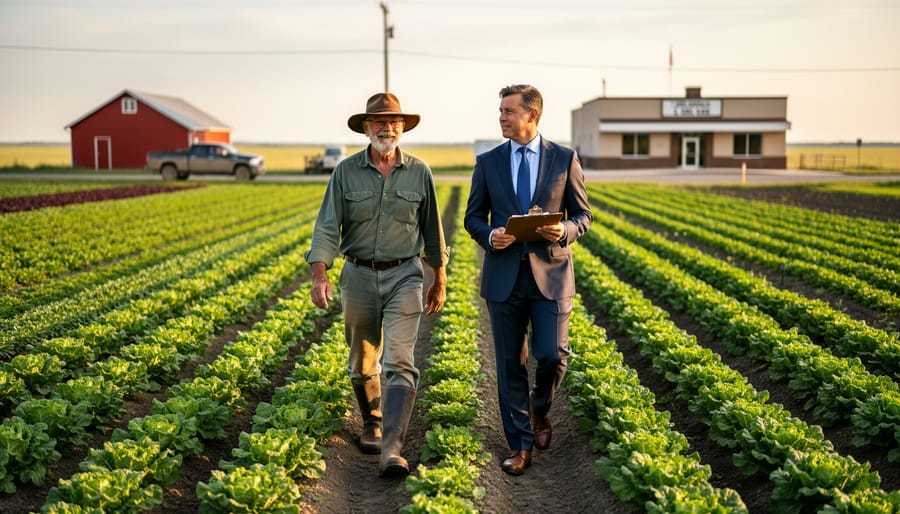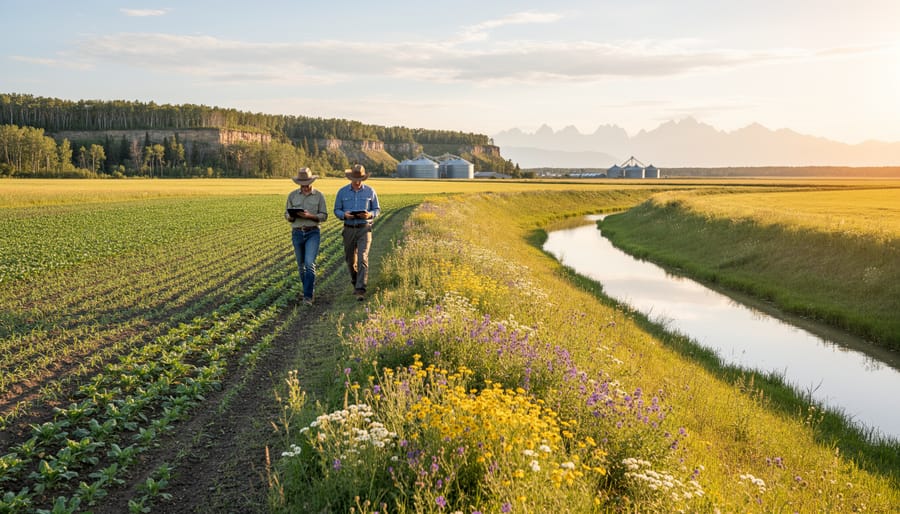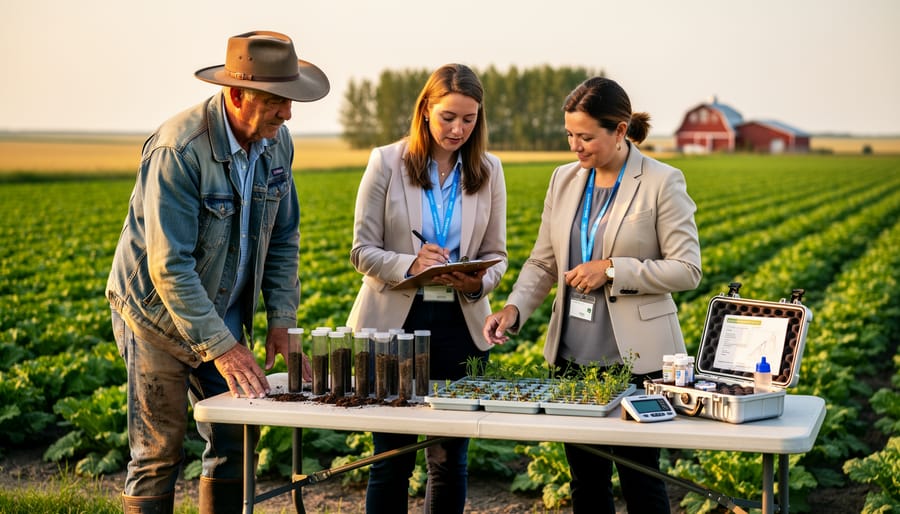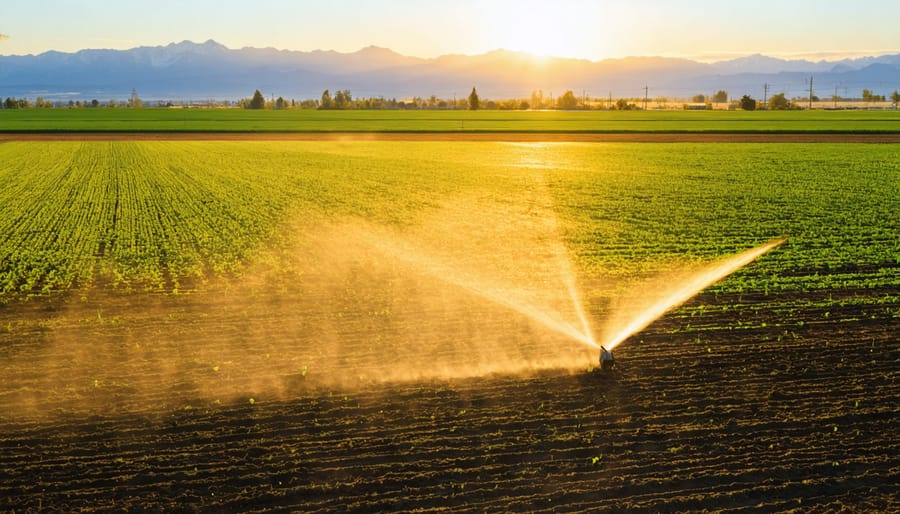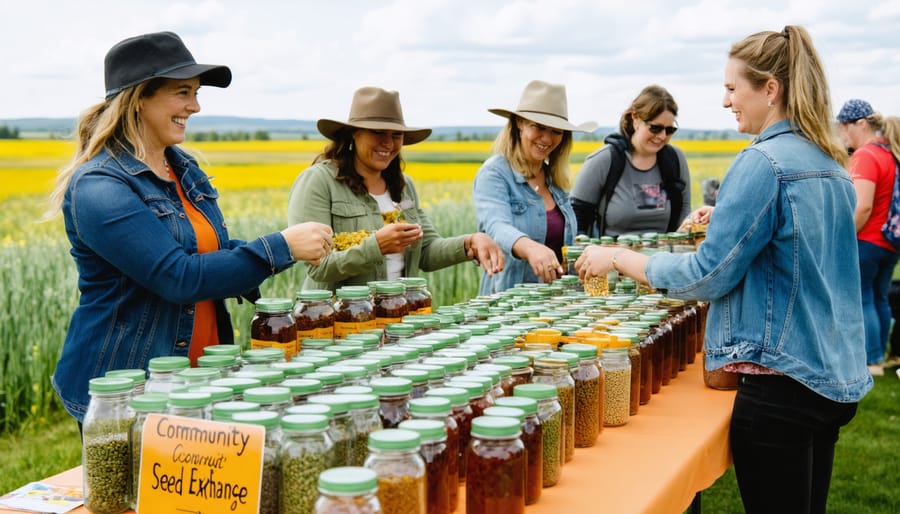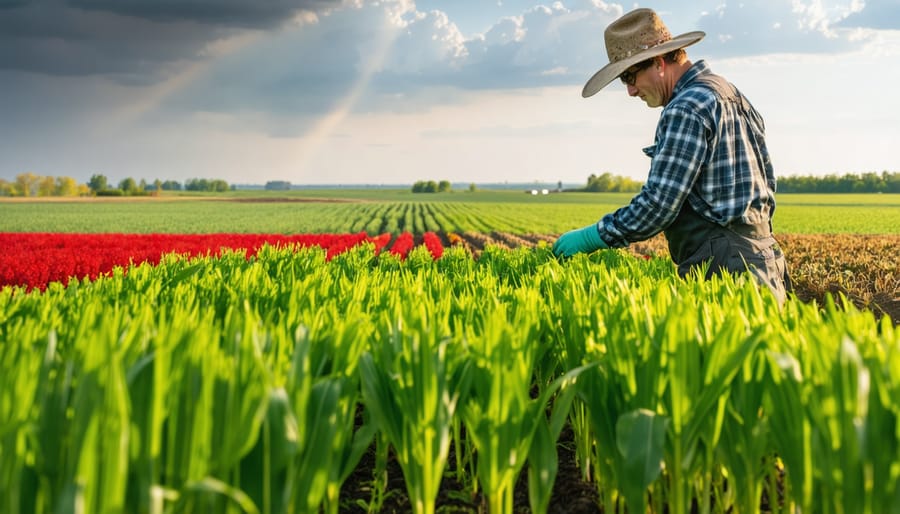Environmental Policy and Law Centers stand as vital bridges between Canada’s agricultural community and sustainable farming practices, offering crucial support for farmers transitioning to organic methods across Alberta and beyond. These specialized legal and policy organizations combine environmental advocacy with practical agricultural expertise, helping producers navigate complex regulatory frameworks while protecting our natural resources.
At their core, these centers serve as powerful catalysts for sustainable agriculture, providing farmers with essential legal guidance, policy expertise, and advocacy support needed to implement environmentally sound practices. Through targeted research, legal representation, and collaborative partnerships with agricultural communities, these institutions have become instrumental in shaping Canada’s approach to sustainable farming.
Working alongside local farming communities, environmental policy and law centers help translate complex regulations into actionable steps, ensuring compliance while maximizing ecological benefits. Their work extends beyond mere legal consultation, encompassing educational initiatives, policy development, and creating vital connections between farmers, researchers, and policymakers to advance sustainable agricultural practices across the prairie provinces.
For Alberta’s farming community, these centers represent more than just legal resources – they serve as partners in building a more sustainable agricultural future, offering practical solutions that balance environmental stewardship with agricultural productivity.

Building Strong Local Advocacy Networks
Farmer-Led Initiatives
Across Alberta, farmers have been instrumental in driving positive environmental change through grassroots advocacy networks and collaborative initiatives. The Southern Alberta Regenerative Farming Collective serves as a prime example, where over 50 local farmers successfully lobbied for policy changes to support sustainable water management practices in 2021.
In the Red Deer region, a group of organic grain producers formed the Central Alberta Soil Health Alliance, which worked closely with provincial authorities to develop new guidelines for cover crop incentives. Their efforts resulted in a $2.5 million funding program supporting farmers transitioning to regenerative practices.
The Peace Country Organic Producers Association demonstrates another success story, having influenced local policies on pesticide drift protection. Their community-based approach led to the establishment of buffer zone requirements and improved notification systems between conventional and organic farmers.
These farmer-led initiatives have shown that local agricultural communities can effectively shape environmental policy when working together. The key to their success has been combining practical farming experience with strategic engagement of policy makers and environmental law experts. Through documentation of soil health improvements and water conservation outcomes, these groups have built compelling cases for policy reform while maintaining strong community support.
Professional Partnership Programs
Our Professional Partnership Programs connect environmental policy centers with agricultural professionals across Alberta, fostering collaboration that benefits both the farming community and the environment. Through these partnerships, farmers gain direct access to legal expertise, policy guidance, and sustainable agriculture resources while contributing valuable practical insights that help shape environmental policies.
Working closely with the Alberta Federation of Agriculture and local farming cooperatives, we’ve established mentorship programs that pair experienced organic farmers with those transitioning to sustainable practices. These relationships provide hands-on support and real-world knowledge exchange, making the transition process more manageable and successful.
Our partnership network includes soil conservation specialists, agricultural engineers, and environmental law experts who conduct regular workshops and field demonstrations. These events provide opportunities for farmers to learn about new sustainable farming techniques while ensuring compliance with environmental regulations.
Notable success stories include the Southern Alberta Organic Coalition, where policy center guidance helped establish a regional organic certification support system. This initiative has assisted over 50 farms in achieving organic certification while maintaining profitability.
We also facilitate regular roundtable discussions between policymakers and agricultural professionals, ensuring that new environmental policies reflect the practical realities of Canadian farming operations. This collaborative approach has led to more effective and implementable environmental guidelines that serve both conservation goals and agricultural interests.
Policy Support for Organic Transitions
Financial Incentives and Grants
Alberta farmers looking to transition to sustainable practices can access numerous organic farming grants and financial support programs. The Environmental Farm Plan (EFP) offers cost-sharing opportunities of up to 70% for implementing eco-friendly farming practices, with typical funding ranging from $5,000 to $50,000 per project.
The Canadian Agricultural Partnership (CAP) provides targeted funding for soil health improvements, water management systems, and biodiversity initiatives. Farmers can receive up to $100,000 for qualifying projects that demonstrate clear environmental benefits. Local conservation authorities also offer smaller grants of $2,000 to $10,000 for specific environmental improvements like buffer strips and windbreaks.
For those transitioning to organic production, the Organic Transition Support Program covers up to 75% of certification costs during the first three years. Additional funding is available through Farm Credit Canada’s sustainability-focused lending programs, offering preferential interest rates for environmental upgrades.
Many regional watershed groups and agricultural societies provide matching funds for innovative environmental projects. These typically range from $1,000 to $15,000 and often include technical support and mentorship opportunities. The Alberta Environmental Stewardship Program also offers tax incentives for land conservation and habitat protection initiatives.
Remember to work with local agricultural extension offices when applying for these programs, as they can provide valuable guidance on application processes and help maximize your funding opportunities. Success rates for grant applications increase significantly when farmers collaborate with environmental policy centers and local agricultural organizations.
Regulatory Compliance Support
Environmental policy and law centers play a crucial role in helping farmers navigate the complex landscape of organic certification. In Alberta, these centers provide comprehensive support through dedicated teams of agricultural specialists and legal experts who understand both federal and provincial organic regulations.
These centers offer step-by-step guidance through the certification process, starting with initial farm assessments and documentation requirements. They maintain up-to-date information on Canadian Organic Standards and help farmers interpret these regulations in the context of their specific operations. For example, the centers provide detailed checklists for land use history, buffer zones, and permitted inputs that align with organic principles.
Farmers receive assistance in developing their Organic System Plans, a cornerstone of certification. Policy centers often organize workshops and one-on-one consultations to help producers understand record-keeping requirements, which are essential for maintaining organic status. They also provide templates and tools designed specifically for Canadian agricultural conditions.
Many centers operate helplines where farmers can get quick answers to certification questions. This immediate support proves invaluable during critical periods like pre-harvest inspections or when addressing compliance issues. They also facilitate connections between farmers and accredited certification bodies, streamlining the application process.
Beyond individual support, these centers advocate for practical improvements to organic regulations and work to ensure that certification requirements remain feasible for Canadian producers. They regularly collect feedback from the farming community to identify common challenges and develop solutions that maintain integrity while supporting farm viability.
Through their expertise and resources, policy centers help make organic certification more accessible and manageable for Alberta farmers, contributing to the growth of sustainable agriculture in the region.
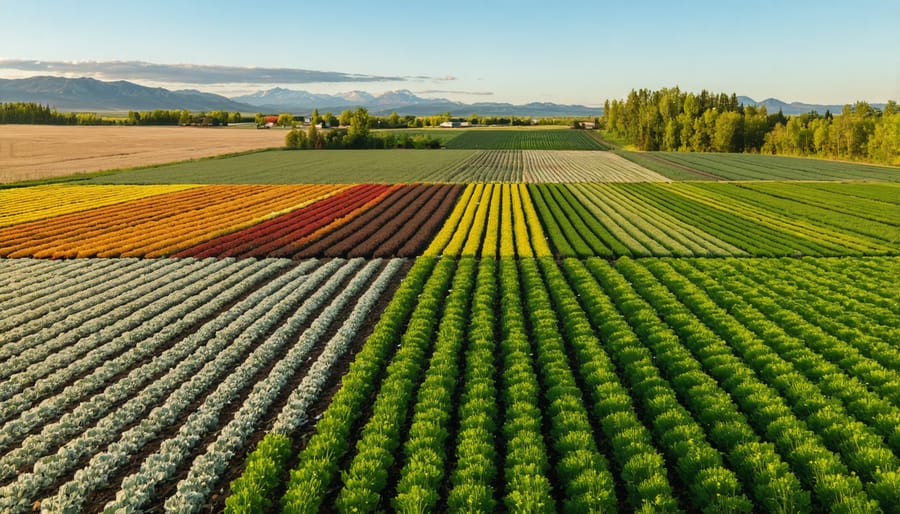
Success Stories from Alberta’s Fields
Economic Impact
The economic impact of environmental policy and law centers extends far beyond regulatory compliance, creating tangible benefits for Alberta’s farming community. Recent studies show that farms working with these centers have experienced a 15-20% increase in market access opportunities, particularly in premium organic markets. Through strategic guidance and support, these centers have helped farmers navigate certification processes while reducing associated costs by an average of 30%.
Many Alberta farmers have shared their organic transition success stories, highlighting improved profit margins of 25-40% after completing their organic certification. The centers’ expertise in grant writing and funding applications has helped farmers secure an average of $50,000 in transition support per farm, significantly reducing the financial burden of organic conversion.
Additionally, these centers facilitate valuable connections with organic buyers and processors, resulting in more stable and profitable long-term contracts. Farmers working with environmental policy centers report stronger negotiating positions and better access to premium markets, both domestically and internationally. The centers’ support in developing sustainable farming practices has also led to reduced input costs, with many farmers reporting savings of $200-300 per hectare on conventional agricultural inputs while maintaining or improving yields through organic methods.
Environmental Achievements
Through collaborative efforts with Alberta farmers, our environmental policy and law center has achieved significant measurable outcomes in sustainable agriculture. Over the past five years, we’ve helped implement conservation practices across more than 50,000 hectares of farmland, resulting in documented soil health improvements and reduced environmental impact.
Working alongside local producers, we’ve facilitated a 30% reduction in synthetic fertilizer use while maintaining or increasing crop yields. Our watershed protection initiatives have led to a measurable 25% decrease in agricultural runoff, protecting local water sources and aquatic ecosystems.
Through our organic transition support program, we’ve assisted 75 Alberta farms in achieving organic certification, representing over 15,000 hectares of converted farmland. These transitions have resulted in documented increases in soil organic matter, improved water retention, and enhanced biodiversity.
Our carbon sequestration monitoring program has demonstrated that participating farms have increased their soil carbon storage by an average of 2.5 tonnes per hectare annually. Additionally, our pollinator habitat enhancement project has established over 200 kilometres of field margins and hedgerows, supporting native bee populations and other beneficial insects.
These achievements reflect our commitment to practical, measurable environmental improvements while supporting the economic viability of Alberta’s farming communities.

Future Directions and Opportunities
As we look ahead, several promising initiatives are taking shape that will create new opportunities for Alberta farmers interested in sustainable and organic practices. The Environmental Policy and Law Center is developing a comprehensive farmer support program scheduled to launch in spring 2024, which will provide one-on-one consultation services to help farmers navigate regulatory requirements and access available funding programs.
A key focus for the upcoming year is the expansion of the Carbon Offset Program, which will allow more farmers to participate in carbon credit markets while implementing environmentally friendly practices. The center is also working to establish a network of demonstration farms across Alberta, where farmers can observe successful organic operations firsthand and learn from experienced producers.
Exciting opportunities are emerging through partnerships with local agricultural societies and research institutions. These collaborations will offer workshops, field days, and practical training sessions specifically designed for farmers considering the transition to organic methods. The center plans to introduce a mentorship program, connecting experienced organic farmers with those just starting their journey.
Digital resources are also being enhanced, with the development of a user-friendly online portal that will streamline access to environmental grants, certification assistance, and technical support. This platform will feature interactive tools for soil health assessment and biodiversity planning, making it easier for farmers to implement sustainable practices on their operations.
For those interested in getting involved, the center welcomes farmer participation in policy development through its Agricultural Advisory Committee. This provides a direct channel for producers to influence future environmental regulations and ensure they reflect the practical realities of farming in Alberta.
Looking further ahead, the center is preparing to advocate for increased funding for sustainable agriculture initiatives in the next provincial budget cycle, with a particular focus on supporting small and medium-sized family farms during their transition to organic practices.
Environmental policy and law centers play a vital role in shaping the future of sustainable agriculture in Alberta and across Canada. As we’ve explored throughout this article, these organizations offer invaluable resources, legal support, and advocacy that can directly benefit your farming operation and our wider agricultural community.
The path to sustainable and organic farming practices doesn’t need to be navigated alone. Policy centers provide the expertise, tools, and collective voice needed to make meaningful changes while protecting your interests as a farmer. Whether you’re considering transitioning to organic practices, seeking guidance on environmental compliance, or looking to contribute to agricultural policy development, these centers are here to support your journey.
Take the first step by reaching out to your local environmental policy center. Consider attending their workshops, joining their mailing lists, or participating in their consultation processes. Your experiences and insights as an Alberta farmer are invaluable in shaping policies that work for our unique agricultural landscape.
Remember that successful policy development relies on active participation from farmers like you. By engaging with these centers, you’re not just investing in your own operation’s future – you’re contributing to the development of a more sustainable and resilient agricultural sector for generations to come.
Together, we can build a stronger, more sustainable farming community while ensuring that environmental policies reflect the practical realities of Canadian agriculture. Your voice matters in this important conversation.


